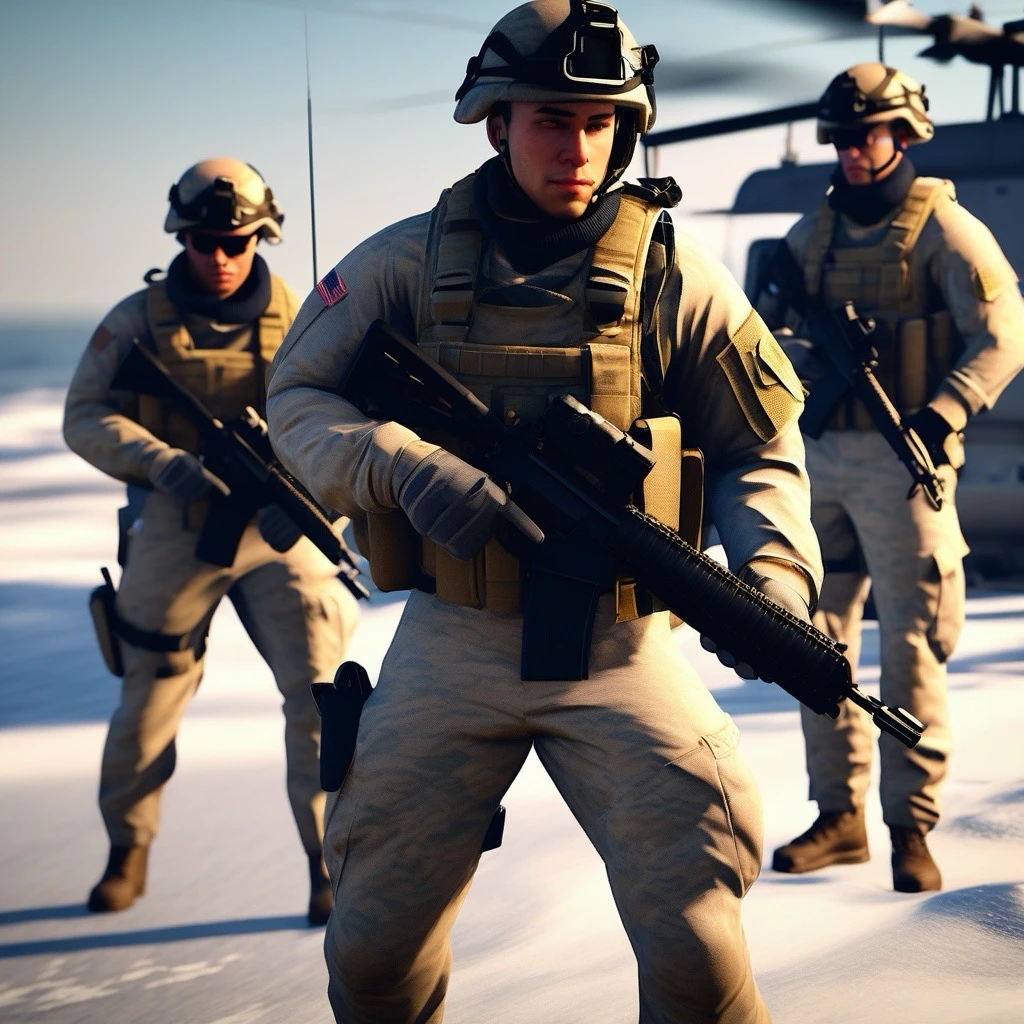Forward-Deployed Regions Military Defense Lawyers – UCMJ Defense Attorneys
Global Court-Martial Defense for Service Members in Forward-Deployed Regions (Okinawa, Middle East, Africa)
Service members stationed in forward-deployed locations—whether Okinawa, the Middle East, Africa, or other austere environments—face unique challenges. These regions often involve high operational tempo, joint missions with local allies, heightened local and international scrutiny, and intense pressure on commanders to maintain discipline. Allegations of misconduct in these areas can quickly derail a career, endanger the mission, and jeopardize lives. Forward-deployed service members need experienced court-martial attorneys who understand the complex interplay of host-nation law, SOFA provisions, U.S. military regulations, and diplomatic considerations.
Gonzalez & Waddington, Attorneys at Law is a global leader in military defense. We have defended U.S. personnel across Okinawa, the Middle East, the Horn of Africa, West Africa, the Sahel, and remote operational outposts. Our attorneys know how to counter investigations that involve host-nation police, multiple U.S. law enforcement agencies, and international media scrutiny.
Why Forward-Deployed Allegations Are Complex
Forward-deployed environments multiply the legal risks faced by service members. Commands often react quickly to avoid international incidents, leading to aggressive investigations and severe punishments even in cases with limited evidence.
- Host-nation authorities may assert jurisdiction and detain service members under unfamiliar laws
- Multiple U.S. investigative agencies (CID, NCIS, OSI, AFOSI) often collaborate, leading to overlapping or conflicting evidence
- Commanders impose immediate liberty restrictions, curfews, and pretrial confinement to preserve the mission
- Operational stress, cultural differences, language barriers, and isolation contribute to misunderstandings and false accusations
- Small-unit cohesion can deteriorate, producing rumor-driven bias in witness statements
- Administrative separation boards and security clearance suspensions are used to remove accused individuals quickly
Without robust legal representation, service members can be overwhelmed by the system. Our attorneys ensure fairness and due process, even in remote theaters.
Common UCMJ Charges in Forward-Deployed Regions
Forward-deployed service members frequently face allegations including:
- Article 120 (Sexual Assault/Rape) – Allegations often emerge from social interactions in isolated environments; convictions carry life-altering penalties
- Article 128b (Domestic Violence) – Domestic disputes quickly involve local authorities and multiple U.S. investigative branches
- Article 112a (Drug Use/Distribution) – Zero tolerance policies mean even small quantities lead to severe charges
- Article 92 (Orders Violations) – Violations include breaking curfews, fraternization, ignoring quarantine or medical directives, and flouting operational orders
- Article 121 (Larceny/Fraud) – Includes misuse of funds, theft of equipment, and fraudulent housing claims in remote regions
- Article 134 (General Misconduct) – Covers adultery, fraternization, indecent conduct, online misconduct, and behavior that undermines host-nation relations
- Administrative Separation Boards/BOIs – Used to expel service members based on allegations without a court-martial
- Security Clearance Suspensions – Immediate removal from sensitive roles if accusations arise
Strategic Defense for Forward-Deployed Cases
Our defense strategies focus on dismantling weak evidence, highlighting operational realities, and protecting rights under both U.S. and host-nation law:
- Demanding access to host-nation evidence and challenging its admissibility under SOFA agreements
- Uncovering inconsistencies in witness statements and identifying ulterior motives or pressure from local authorities
- Leveraging digital evidence (texts, location data, metadata) to reconstruct events and disprove allegations
- Presenting expert witnesses on cultural differences, operational stress, psychology, or forensic science
- Exposing bias and rumor-driven investigations in small units and tight-knit deployments
- Preparing comprehensive rebuttals for administrative separations and security clearance suspensions
Why Choose Gonzalez & Waddington for Forward-Deployed Defense
Service members around the world trust our firm because we have repeatedly defended complex cases in the most challenging environments. Our global experience ensures your rights are protected, even far from home.
- Over 20 years of global court-martial defense success
- Former Army JAG attorney with combat-zone and expeditionary mission experience
- Authors of leading texts on cross-examination and trial warfare
- Recognized for aggressive, intelligent defense strategies that deliver results
- Deep knowledge of SOFA provisions, host-nation legal systems, and international human rights standards
Contact Our Forward-Deployed Military Defense Lawyers & Court Martial Attorneys
If you are serving in Okinawa, the Middle East, Africa, or other remote regions and face UCMJ or administrative allegations, do not wait. The unique pressures of forward-deployed environments mean investigators and commanders act quickly. Our defense team will fight to protect your future and your freedom.
➤ Contact Gonzalez & Waddington for a Confidential Consultation
Forward-Deployed Regions Military Defense Lawyers – UCMJ Defense Attorneys – Frequently Asked Questions
Do host-nation authorities have jurisdiction over forward-deployed service members?
Yes. In most locations, host-nation police and prosecutors can investigate and prosecute crimes committed off base under Status of Forces Agreements. Understanding your rights under SOFA and obtaining expert legal counsel are critical to protect your freedom.
Should I speak to investigators without a lawyer while forward-deployed?
No. Politely decline and request counsel. Investigators often assume guilt to protect the mission or diplomatic relations. A lawyer ensures you do not unintentionally incriminate yourself and helps navigate multiple legal systems.
What types of UCMJ allegations are common in forward-deployed locations?
Common allegations include sexual assault, domestic violence, drug use, fraternization, orders violations, larceny, fraud, indecent conduct, and online misconduct. Isolation, stress, and cultural differences often contribute to accusations.
Can administrative separations happen without a court-martial?
Yes. Commands frequently use administrative separations, BOIs, and security clearance suspensions to remove personnel quickly, especially in forward areas. These actions require aggressive legal defense to protect your career and benefits.
Who are Michael and Alexandra Gonzalez‑Waddington?
They are internationally recognized military defense lawyers known for defending U.S. service members worldwide, including in combat zones and remote deployments. Their firm is acclaimed for strategic cross-examination and a history of winning tough cases in the most challenging environments.


